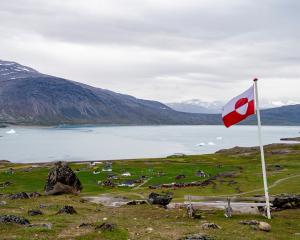
I spoke recently with a friend, an academic of some repute with an acute appreciation of injustice on a national and international scale, of unfolding world events resulting in death and destruction of truly awful proportions.
For the first time since meeting this friend, I glimpsed a sense of frustration and impotence at our collective inability to shift the needle of cause and effect. To convert awareness into some form of concrete steps towards reducing the scale of this mayhem.
Daily, we see the results of euphemistically termed strikes on civilian targets in Gaza and Lebanon, strikes on Yemen, real and threatened on Iran, and troop incursions into southern Lebanon. There is an ongoing escalation of violence, death and destruction, and now the words "World War 3" are beginning to appear in pronouncements from senior officials.
These storm clouds gather in intensity daily. In the meantime, major powers in the West, including the United States and the United Kingdom, stoke these fires by providing vast quantities of lethal arms for use in the assaults.
Israel threatens a major strike on Iran, yet another retaliation. If the situation wasn’t so serious it would be laughable. It is illustrative of a schoolyard altercation justified by "you hit me first" mentality.
It is lamentable that our international institutions founded for the purpose of de-escalation of conflict and monitoring peace are essentially ineffective due to the structures under which they operate.
As if the menace represented by these events was not enough, we see, almost on a daily basis, mass destruction inflicted by nature. Hurricanes in the US, floods in Pakistan, Europe and Nepal, and extreme drought all impact human life and property. There can now be no doubt, except by the wilfully uninformed or conspiracy theorists, that the global warming/climate change phenomenon, of which we have had decades of warning, is causative. The globe is warming.
Collectively, the science is agreed that extreme weather events are more frequent and severe due to global warming. Yet there is little indication of urgency in addressing the root cause, extraction and burning of fossil fuels. Indeed, we have a government that would hold to the premise that growing the economy must have priority over any urgency in reducing our reliance on fossil fuels.
One can appreciate the momentary frustration of my friend in contemplation of the state of the world’s affairs. One gets the impression that the world is sleepwalking towards imminent disaster, whether it be by conflict or consumption.
Is this reminiscent of a world pre-1914, when the great powers of the day, each confident in their omnipotence, danced around each other as the war clouds gathered?
The ensuing suffering and deaths was catastrophic. Far from ending all wars, management of the resolution of World War 1 led directly to WW2 just some 31 years later. Notably, WW1 directly brought about the demise of the superpowers that embarked so confidently on that enterprise.
The ordinary people, despite their best endeavours, could not avert WW1.
Perhaps there is still time to change history by persuading political leadership that endlessly arming belligerents is not acceptable and that real action is required to halt the pace of global warming.
■Noel O’Malley is a former president of the Otago District Law Society and has a masters in peace and conflict studies.









